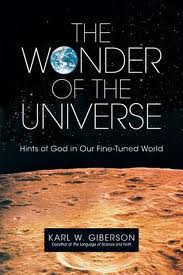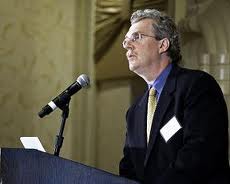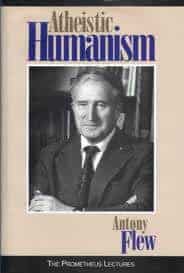 Today we welcome guest blogger Karl Giberson. Giberson is an internationally recognized voice of the science/faith conversation. He is the author of several books on the subject, including Saving Darwin: How to Be a Christian and Believe in Evolution
Today we welcome guest blogger Karl Giberson. Giberson is an internationally recognized voice of the science/faith conversation. He is the author of several books on the subject, including Saving Darwin: How to Be a Christian and Believe in Evolution, The Language of Science and Faith: Straight Answers to Genuine Questions
, and The Anointed: Evangelical Truth in a Secular Age
(with Randall J. Stephens). Giberson is also co-founder of BioLogos, along with Francis Collins and current president Darrell Falk. (See his complete bio here.)
Over the next several days, Giberson will be posting a six-part series from his new book The Wonder of the Universe: Hints of God in Our Fine-Tuned World (IVP). The series includes the opening and closing sections of the book, and 4 representative samples from the rest.
The Wonder of the Universe presents a two-part argument. In the first section, Giberson outlines the history of our understanding of the universe, emphasizing the reliability of our knowledge of both its properties and its history. In particular he outlines the remarkable evidence of design.
Giberson outlines the history of our understanding of the universe, emphasizing the reliability of our knowledge of both its properties and its history. In particular he outlines the remarkable evidence of design.
In part two, Giberson discuss the complexities of drawing inferences from the design of the universe, cautioning against over eager Christian apologists who want to argue that the fine-tuning of the universe proves the existence of God.
Excerpt #1: The Strange Case of Antony Flew
In 1748 John Wesley founded Kingswood School in Bath, England, a city established as a spa resort by the Romans in A.D. 43 to take advantage of the country’s only hot spring. A hero of the Christian faith, Wesley graduated from Oxford University—then a thoroughly Christian institution—and was one of the best-educated scholars of his generation, as well as England’s most important religious leader. He believed strongly in education and promoted it consistently throughout his long and productive ministry, which saw him constantly on horseback traveling from village to village.
The many preachers Wesley trained were expected to take learning seriously, even as they preached a message of holiness and piety. Wesley established Kingswood to train the sons of his Methodist leaders, whose paltry salaries often made them unable to afford the existing schools, with their well-heeled students. Some years later, in 1894, a companion school to train preacher’s daughters, appropriately—at least for the time!— named Queenswood, was established. Kingswood became coeducational in 1978, a development that would surely have alarmed its founder.
Like many of England’s long-established schools, Kingswood celebrates distinguished alumni who went on to become leaders in science, politics, business and other fields. Kingswood’s leading intellectual alumnus is Antony Flew, one of the most important philosophers of the last half of the twentieth century and, by most measures, his generation’s most notorious atheist.
Flew the hard-boiled atheist was nowhere in sight, however, when young Antony enrolled in Wesley’s venerable school for the children of ministers, who would have been taken to the woodshed for even flirting with atheism. “I entered Kingswood as a committed and conscientious, if unenthusiastic, Christian,” he recalled near the end of his long life. Kingswood, or “KS” as the students called it, promotes itself as a “happy, vibrant and forward-looking school which provides the very best in all round education for pupils aged 3 to 18 years.” KS enshrines Wesley’s original Christian principles and “all pupils are encouraged to discover a real enthusiasm for learning and a spirit of enquiry.”
school for the children of ministers, who would have been taken to the woodshed for even flirting with atheism. “I entered Kingswood as a committed and conscientious, if unenthusiastic, Christian,” he recalled near the end of his long life. Kingswood, or “KS” as the students called it, promotes itself as a “happy, vibrant and forward-looking school which provides the very best in all round education for pupils aged 3 to 18 years.” KS enshrines Wesley’s original Christian principles and “all pupils are encouraged to discover a real enthusiasm for learning and a spirit of enquiry.”
Flew reveled in the “spirit of enquiry” at KS—decades before girls were admitted, of course— and with “unrestrained eagerness” he “consumed books on politics, history, science, or almost any topic.” Except religion. He had no real interest in learning about religion and found its various practices to be a “weary duty.” Not surprisingly, by the time he finished KS, his childhood faith, shaky and tenuous at best, had disappeared entirely.
Flew went on to a distinguished career at an almost completely secularized Oxford, rapidly emerging as one of England’s leading voices for atheism, debating prominent Christians in Europe and North America. He honed his debating skills at Oxford’s venerable Socratic Club, where C. S. Lewis famously defended Christianity and developed apologetic arguments that would appear in books like Mere Christianity, Miracles and The Problem of Pain. Flew spoke on highbrow BBC radio programs, published in prestigious journals and wrote regularly for the popular media. Wherever arguments supporting belief in God appeared, Flew was there, logical rapier in hand, to demolish them with counterarguments. Or so he thought.
Flew’s atheism, solidified by the time he was a wise old man of fifteen, rested on the traditional problem of evil. This has been a perennial problem for belief in God, ever since poor Old Testament Job wondered why his circumstances were going downhill so fast for no apparent reason. If God is good and powerful, why do terrible things, like the 2011 earthquake and tsunami in Japan, happen? Shouldn’t a good God want to prevent that? And shouldn’t an all- powerful God be capable of doing so?
Christian philosophers have puzzled with dismay over this problem of evil for centuries and never resolved it. Anti-Christian philosophers have delighted in it. So Flew, following a path worn smooth by agnostics and atheists before him, rejected God as illogical and contradictory at about the time he was awakening to philosophy. Years later he reflected on this with the theologian Gary Habermas:
I suppose that the moment when, as a schoolboy of fifteen years, it first appeared to me that the thesis that the universe was created and is sustained by a Being of infinite power and goodness is flatly incompatible with the occurrence of massive undeniable and undenied evils in that universe, was the first step towards my future career as a philosopher!
Decades later, after penning hundreds of pages of arguments against the existence of God, Flew began to have second thoughts.
At the Socratic Club, everyone accepted a rule for thinking that went back more than two thousand years to Plato, where Socrates instructs his students to follow the argument “wherever it leads.” This sounds obvious, like fortune-cookie common sense. But it is difficult in practice, because we are all humans. Often, as we try to understand the world around us, the evidence leads us in a direction we don’t want to go. Perhaps the evidence suggests that our spouse is cheating on us or that our singing voice is terrible or that our kid really is the worst bully on the playground.
Most people abandon the trail of evidence when they see it leading them somewhere they don’t want to go, if they haven’t already abandoned it because logic is such a burden. Flew, however, had spent a lifetime following evidence and was widely regarded as a fair-minded thinker. He would often, for example, acknowledge strengths in his opponent’s arguments and weaknesses in his own. And he was cool-headed about it. Unlike the loud atheists that succeeded him—Richard Dawkins, Daniel Dennet, Jerry Coyne, Sam Harris, Christopher Hitchens—he was not inclined to ridicule or caricature those he disagreed with. His argument was not with his opponents; it was with their beliefs.
A trail of evidence began to appear in front of Flew, like the bread crumbs that Hansel and Gretel followed into the forest. He couldn’t see clearly where the trail led, but, mindful of Socrates’ wise counsel, he was determined to follow it.
 Three trails of evidence attracted Flew’s attention, all rooted in the scientific understanding of the world, for which he had great respect. The three trails are:
Three trails of evidence attracted Flew’s attention, all rooted in the scientific understanding of the world, for which he had great respect. The three trails are:
1. The remarkable character of the laws of nature that don’t seem to be random features of the world or something that is self-explanatory.
2. The mysterious and subtle way that life originates from nonlife.
3. The unexplained origin of the world.
Flew’s scientific breadcrumbs led him to new and surprising insights—at least new and surprising for him. He did not demolish all of the traditional objections to belief in God—he thought evil was still a problem, and that among the world religions there was still no good way to identify the right one. In fact, Flew did not really find religion at the end of his trail.
Consistent with his commitment to follow the evidence as far as it led and no further, he stopped when the breadcrumbs ended. He did not complete his journey by making a leap of faith and returning to the Christianity of his childhood—a truly fairy-tale ending. But he did find, within science, evidence that compelled him to repudiate his lifelong atheism and embrace belief in God.
Next post: “Excerpt #2: The Heavenly Declaration”
